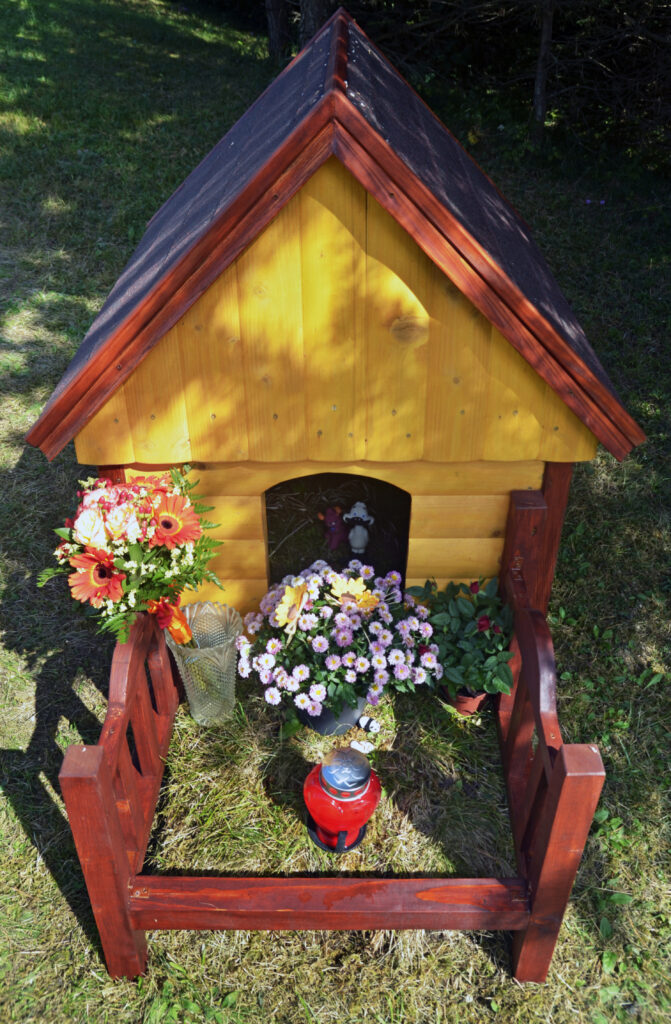Grief affects us all differently. But anyone who has experienced losing a pet knows only too well the tremendous pain. And, sadly, the hurtful comments from others along the lines of ‘it’s only a dog/cat/rabbit/other type of pet’.
‘A lot of people are shocked that it knocks them for six. Their animal friend is the closest one to them,’ explains pet bereavement counsellor Renee Magri.
We sat down with Renee, founder of Forever in my Heart, to explore how to cope with the grief of losing a pet and the process of what can often be our hardest goodbye.
What inspired you to become a specialist counsellor for losing a pet?
I was studying counselling in grief and loss and knew I’d niche in some way. Then my boxer Buckley, at only three years, ten months, was diagnosed with DCM (dilated cardiomyopathy – a serious heart condition). We were told he would probably be gone in about six months.
In that instant, I felt my whole world was coming down… I didn’t expect to be told that. It impacted me greatly and I knew I was experiencing things I’d never felt before in terms of grief and loss.
I was not only navigating my own grief, but I knew then that I wanted to help and support others going through the same thing.
A lot of grief counsellors now include pet loss in their range of support, however I’m probably one of the few counsellors that help with the navigation of pet loss (before and after a loss) specifically.
How difficult is the pre-grieving stage when you get a devastating diagnosis like that?

The before can be very impactful. We had 22 months post-diagnosis where Buckley became increasingly unwell.
I don’t think a lot of people are aware that they have anticipatory grief. Anxiety levels can go through the roof. They’re feeling very focused on caring for their loved one and they’re feeling it but don’t know it’s anticipatory grief.
When Buckley had a good day, I had a good day. When he had a crappy day, I had a crappy day.
Did you end up having to decide to have Buckley euthanised?
We did have to make that decision. We were told he could pass at any time. My wish for him was for him to fall asleep in my arms, rather than die in a potential emergency situation.
It’s a question that comes up quite a lot (with clients). How can you make the decision about when is the right time? And to be honest, there’s never a right time, because we never want to lose them.
What advice do you give to clients thinking about euthanising their terminally ill pet?
Be well-informed. Get the best medical advice from your vet.
Take someone with you to be your ears. Write things down. If you’re not happy, get a second opinion.
Talk about a euthanasia plan. If the prognosis is terminal, speak about euthanasia itself. Home euthanasia is something you can have. I had it with Buckley. When the time came, I didn’t have to talk about the how, when and why.
I tell clients there’s never going to be a right time. But a week too early is usually better than a week too late. Sometimes people can wait too long … I wanted control over Buckley’s euthanasia unfolding.
Why do you think a pet-specific counselling service is needed?

I’m very passionate about this much-needed support. Many people feel closer to their animals than people in their lives. The grief that people feel can be off the charts.
A lot of people are shocked that it knocks them for six. Their animal friend is the closest one to them.
I’ve had clients say ‘I’ve experienced loss in my life but this is next-level and I don’t know how to sit with this’.
What is the biggest issue for clients when it come to losing a pet?
A lot of people have their grief downplayed by close friends and family. They’ve been told to just go and get another dog, cat, rabbit, bird…
But most people don’t want their grief to be fixed, because it can’t be. They want it to be acknowledged, validated and recognised. I like to focus on how they can carry that grief around.
Every client is different. I think it’s important to provide a calm and safe environment, where they feel safe and heard and not judged. Just being able to speak openly about how they feel is such a relief for most people.
You’ve spoken about anticipatory grief. Are there other kinds of grief too?
A lot of people have ambiguous grief where a not knowing is intertwined in the grief journey.
An example of this is when an animal companion runs away or is stolen from you. Or if there’s a relationship breakdown, sometimes shared custody doesn’t happen, which would create a lot of not knowing within the grief.
Some people don’t see their animal friends ever again. Working through ambiguous grief can have other layers because of the not knowing. There’s no closure. You can’t map it out. There’s no rules.
I like to focus on support in all areas. Keep the grief moving at a pace that works for the person.
In the case of losing a pet, family breakdown or pets running away, how are kids affected?
Kids will grieve too, but do it in their own way. Allow them to grieve their way.
Some children can be very withdrawn and not want to talk about it. Or others might want to talk about it.
Also, being honest with children is important. It’s best if they have a full understanding (on their level) of what death means.
Visual memorials – coffee mugs, photo blankets or pillows can help. There’s also lots of pet loss books for children now. Art therapy can be helpful – getting them to draw pictures of their pet. You just need to give them the opportunity to express it, because whatever your age, grief likes movement.










